Episodes
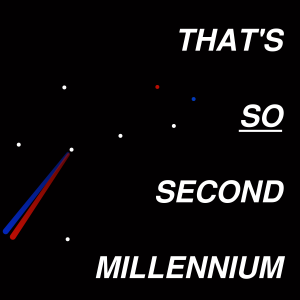
Monday Nov 21, 2022
Ep 146 - TSSM Takes a Break
Monday Nov 21, 2022
Monday Nov 21, 2022
- The co-hosts announce that the TSSM podcast, now posting our 146th episode, will begin a hiatus, but all programs and show notes will continue to be archived and accessible.
- This episode allows Dr. Paul Giesting and Bill Schmitt to look back on their four-and-a-half years of interviews and discussions seeking a greater synthesis of knowledge: an exploration of science and religion, philosophy and spirituality, neuroscience and quantum physics, policies and principles, history and the future, to better understand ourselves and the values and virtues in our lives. Our curiosity and concerns are grounded in our experiences as cradle Catholics, a confidence that faith and reason can grow together as essentials for problem-solving wisdom, and a desire to honor the Church a central source of guidance and continuing growth.
- Our first episode was posted on April 2, 2018, more than four-and-a-half years ago. We have welcomed a long list of well-known guests with expertise in a variety of fields, seizing the opportunity for rigorous but highly accessible, interdisciplinary and inspirational, conversations that transcend silos of specialization. We are grateful for the grand adventure of pursuing truth and reality, both visible and invisible, with the scholars and thought-leaders who shared their insights.
- That’s So Second Millennium was the first podcast to provide structured news coverage and commentary on the conferences and lectures of the Society of Catholic Scientists, and we interviewed a number of SCS members. Both Paul and Bill have been members of the growing, international organization.
- Paul, who holds a PhD in Geology from the University of Notre Dame, presented a lecture on uranium and nuclear power at the SCS 2022 conference in Chicago.
- In this episode, we made references to Billy Joel’s “We Didn’t Start the Fire” and to “Sing God a Simple Song”—from Leonard Bernstein’s
- We talked about Wyoming Catholic College, where Paul is on the faculty, and we talked Holy Cross College, where Bill taught as an adjunct professor for three semesters before moving from South Bend, IN, to Troy, NY, in 2022. Both solidly Catholic colleges, we agreed, excel in their efforts to integrate the different aspects of our humanity and the various forms of knowledge within the hearts and minds of students.
- Paul and Bill are inveterate Catholic communicators and educators. Learn more about Paul’s background in teaching, consulting, and public service. Learn more about Bill’s life as writer-editor, broadcaster-blogger, and author.
- Here are some of the people we have been privileged to interview: SCS president Stephen Barr; planetary scientist Jonathan Lunine; astrophysicist and astronomer Brother Guy Consolmagno, SJ; theologian Paul Seongh Chung; Magis Center president and EWTN series host Father Robert Spitzer, SJ; astrochemist Karin Oberg; neurobiologist Maureen Condic; speaker-evangelist Deacon Harold Burke-Sivers; pro-life experts Richard Doerflinger and Christopher Bell; geologist Anne Hofmeister; cybersecurity expert Michael Cloud; psychologist Darcia Narvaez; business professor-author Anjan Thakor; and soul and spiritual musician Micki Miller. Learn more about them in the show notes accompanying their TSSM episodes. Thanks also to our friend, composer and performer Vin Marquardt, for writing our podcast’s closing theme for a long time, “Igneous Grok.”
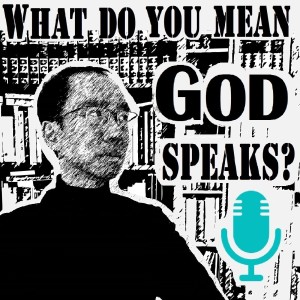
Monday Oct 17, 2022
Ep 145 - Faith Journeys That Make a World of Difference: Paul Seungoh Chung
Monday Oct 17, 2022
Monday Oct 17, 2022
- Paul and Bill welcomed Paul Seungoh Chung to discuss how people can converse constructively about God despite their different backgrounds and different faith journeys. Dr. Chung, who has taught Christianity and science courses at the University of Toronto, is the author of God at the Crossroads of Worldviews: Toward a Different Debate about the Existence of God (University of Notre Dame Press, 2016).
- He also produces a podcast, “What Do You Mean God Speaks?”—a presentation of his ongoing research and reflection for a second manuscript. His compelling comments, citing Bible stories and other resources, aim to follow up on the book’s hopeful message: When two persons seeking God along different paths find a crossroads where they can share key ideas, how do they take the next steps to pursue meaning and purpose through further spiritual and intellectual inquiry? The crossroads “sets the frame to start the journey,” he explained in our interview.
- Dr. Chung holds a Ph.D. in the philosophy of religion from Fuller Theological Seminary. He earned a Master of Religion degree from Wycliffe College, an evangelical graduate school rooted in the Anglican tradition at the University of Toronto. As an undergraduate at the University of Toronto – University of Trinity College, he received a Bachelor of Science degree in psychology and philosophy.
- He has served as a pastor at local churches in Toronto and has worked with a mission organization, Canada Mosaic Christian Alliance.
- Dr. Chung’s references during our conversation included the philosophical insights of Alasdair MacIntyre at the University of Notre Dame, the concept of “paradigm shifts” described by philosopher of science Thomas Kuhn, and the atheistic argumentation of physicist Stephen Hawking.

Tuesday Aug 30, 2022
Ep 143 - Scott Gazzoli and Spirit over Show
Tuesday Aug 30, 2022
Tuesday Aug 30, 2022
For August Paul interviewed Scott Gazzoli of the Causing the Effect podcast. He's a wealth manager in Brooklyn who has been through a long and harsh spiritual journey. We touch on fitness and the psychology of achievement and spend the most time talking about the deceptiveness of material goals--money, sex, physical pleasure--how spiritually and psychologically they turn out to be deceptive and destructive.
Be sure to check out:
Scott: Causing the Effect Podcast, on YouTube, Twitter, and Instagram
Our interview
Scott's recommended read, Mindfulness in Plain English

Sunday Jul 31, 2022
Ep 142 - Matt Swaim: Symbols and Substance, in Faith and Online
Sunday Jul 31, 2022
Sunday Jul 31, 2022
-
Matt Swaim is the co-host of the Son Rise Morning Show, heard Monday through Friday 6-8 am on hundreds of stations in the nationwide EWTN Catholic radio network. He is also the outreach manager for the Coming Home Network, an apostolate that helps non-Catholic Christians who desire to learn more about, and consider entrance into, the Catholic Church. He co-hosts a podcast, “On the Journey,” for that organization.
-
Paul and Bill talked with Matt largely about the challenges in understanding, and then catechizing and evangelizing about, the Real Presence of Christ’s body and blood, soul and divinity. It is this Eucharist, into which Catholics believe the bread and wine at Mass have been transubstantiated.
-
Bill also has gotten to know Matt by being interviewed on the Son Rise show, and the two share an interest in media criticism on communication about religion. More generally, they discuss communication which uses symbolic language and sometimes loses touch with important truths.
-
Matt has written a book that deals with these topics. Prayer in the Digital Age, was published by Ligouri Press in 2011. Bill has written a book on related topics. When Headlines Hurt: Do We Have a Prayer? was published in 2018.
-
The topics of the Eucharistic and symbolism vs. the Real Presence became especially timely this year when the US Conference of Catholic Bishops initiated a “National Eucharistic Revival.” The bishops were reacting, in part, to national survey findings that only about one-third of American Catholics believe the Eucharist is the real body and blood of Jesus Christ, rather than a symbol. Survey findings came from the Pew Research Center, and Bill wrote about those findings recently for The Tablet, the newspaper of the Diocese of Brooklyn, NY.
-
Matt made reference to the Latin maxim, Lex Orandi, Lex Credendi. He also referred to the “milkshake duck” meme and how it ties in with digital media culture. This savvy media analyst also made references to The Dark Knight and to the Hollywood films constituting “the Marvel universe” of comic book superheroes.
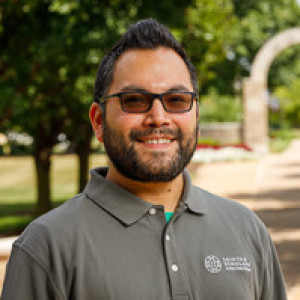
Thursday Jun 30, 2022
Ep 141 - Louis Albarran and the Faith of Real People
Thursday Jun 30, 2022
Thursday Jun 30, 2022
- Paul and Bill spoke with Louis Albarran, associate professor of theology at Holy Cross College in Notre Dame, IN. Albarran holds a master’s degree and a Ph.D. from the University of Dayton, and he specializes in the connection of religion, culture, and the physicality of devotional practices, with a focus on the Latino Catholic culture.
- Albarran spoke of the story of Our Lady of Guadalupe, as told by the Aztec people in their own language. The name of this narrative is Nican Mopohua.
- Albarran spoke of the Dayton school of thought regarding the meaning of Catholic devotions for culture. He referred to Thank You, St. Jude, written by Robert Orsi. [Paul cannot help adding a reference to St. Jude by Brian Setzer.]
- Currently reading: Making Culture by Andy Crouch.
- The annual “Saints and Scholars” summer program for high school students on the Holy Cross College campus is directed by Albarran.
- Peter Kreeft and Christopher Baglow offer notable perspectives on the compatibility of science and religion.
- Holy Cross College’s Moreau College Initiative grants degrees to prisoners.
- William Cavanaugh wrote about the wars of religion and the rise of the nation-state. Peter Kreeft wrote a condensed Catholic catechism. Kenneth Miller wrote Finding Darwin’s God. Aldous Huxley wrote Brave New World.
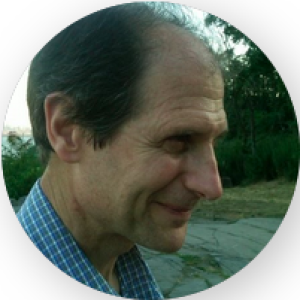
Tuesday May 31, 2022
Ep 140 - Chris Bell – Views from a Pro-Life Lifetime
Tuesday May 31, 2022
Tuesday May 31, 2022
- Christopher Bell, president and executive director of Good Counsel Homes, is “on the frontline of the pro-life movement,” as The Catholic World Report wrote in a 2021 profile. Chris and TSSM co-host Bill Schmitt have been friends since their college years, when they were both studying journalism. Co-host Paul Giesting joined the two native Long Islanders for a discussion of Catholic values in the abortion debate shortly after the leak of a draft US Supreme Court decision which pointed toward a Court decision overruling Roe v Wade.
- In 1985, Bell co-founded Good Counsel with Father Benedict Groeschel, who was a much-loved voice in Catholic spirituality and media and a member of the Franciscan Friars of the Renewal.
- Good Counsel operates four homes to provide basic necessities and steps toward a stable future for moms and their babies, unborn and recently born, in New York and New Jersey. The homes are a pro-life alternative available at no cost to mothers who choose to give birth rather than abort their babies.
- The trajectory of politics and policies in New York and New Jersey has been strongly pro-abortion. The differences in approaches among all the states are being highlighted more than ever in the context of the Supreme Court’s pending decision in Dobbs v Jackson Women’s Health Organization.
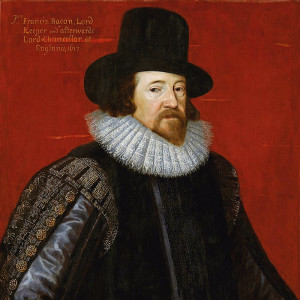
Monday Feb 28, 2022
Ep 137 - Francis Bacon and the New Organon
Monday Feb 28, 2022
Monday Feb 28, 2022
As the emcee noted at a concert here in Lander, a Musical History Tour, the Renaissance--the period when Europe revived its intellectual life by re-evaluating the writings of the Hellenistic past--ends around the year 1600, give or take. By that time, the focus had shifted toward going beyond the ancients instead of merely revisiting their achievements. This shift in focus happened on a different schedule in different fields, to be certain. Music may have been well ahead of the ancients already in the high medieval period. The Scholastics, and indeed their Arabian predecessors, while firmly rooted in Aristotle and the Neoplatonists, were already progressing beyond those foundations in the thirteenth century. On the other hand, painting and sculpture may not have outstripped the Greeks and Romans until the nineteenth century.
In any case, the seventeenth century would be the one in which Greek mathematics and Aristotelian natural philosophy gave way precipitously to new approaches. Algebra, lurking in the background of Greek thought and poking its head above the canopy in Arabian and Italian mathematics, would finally spawn analytic geometry and calculus. The focus and methods of natural philosophy would shift in many ways, including the use of mathematics and a great increase in the number of people collecting observations and conducting experiments and discussing their results with others. The existing sciences of astronomy, mechanics, botany, and zoology would be transformed, and chemistry and geology would be born outright. Inventions like the telescope and microscope would begin to reveal unsuspected layers of richness in the universe.
-Bacon: bio and politics
-The Reformation had to attack Scholastic *theology* but the universities continued to be heavily Aristotelian
-Aristotle and the distinction between philosophy and science that would be inverted by the 19th century
-Aristotle's focus on deduction and Bacon's polemical critique of the syllogism: "The New Organon"
-The role of induction and statistical reasoning; Bacon's blind spot for mathematics and his tables
Image: Francis Bacon by Paul van Somer, courtesy Wikimedia (By Paul van Somer I - pl.pinterest.com, Public Domain, https://commons.wikimedia.org/w/index.php?curid=19958108)
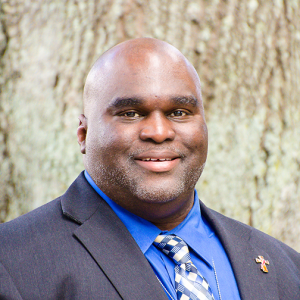
Monday Jan 31, 2022
Ep 136 - Deacon Harold: Life Rich in Reality, Reality Rich in Life
Monday Jan 31, 2022
Monday Jan 31, 2022
Deacon Harold Burke-Sivers (deaconharold.com) is a Catholic deacon and public speaker. Bill and I had the privilege of interviewing him earlier this month.
-
Deacon Harold Burke-Sivers is one of the most incisive and authentic Catholic speakers and authors who have arisen to serve the New Evangelization, including an outreach to the younger generations who hunger to combine secular reality and meaningful Church values.
-
Paul and Bill know Deacon Harold through our connections to the University of Notre Dame. But the Deacon’s reputation has spread internationally; as a scholar and a presenter nicknamed “the Dynamic Deacon,” he offers large groups from many backgrounds fresh resources for spiritual renewal, including the refreshment of male spirituality. This topic is masterfully addressed in his book, Behold the Man.
-
Deacon Harold has appeared frequently on the EWTN Catholic radio and television networks. Recently, he took part in a discussion on racism and Catholic responses in an episode of the “Franciscan University Presents” program.
-
A number of other books authored by Deacon Burke-Sivers over the years can be found here.
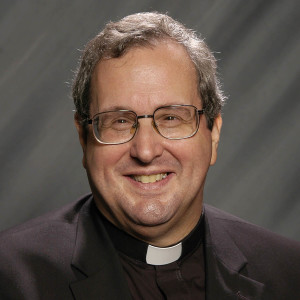
Monday Dec 20, 2021
Ep 135 - A Visit to the Universe of Fr. Robert Spitzer, SJ
Monday Dec 20, 2021
Monday Dec 20, 2021
- Paul and Bill were privileged to talk with Father Robert Spitzer, SJ, the founding director of the Magis Center in Orange County, California.
- Father Spitzer’s biography includes service as the president of Gonzaga University and the authorship of numerous books about various aspects of theology, philosophy, spirituality, apologetics, happiness and the meaning of life, and much more.
- He has produced a huge collection of materials for online use. His main websites are the Magis Center site, com, and PurposefulUniverse.com. In this interview, he describes the sites and how our listeners can select and use materials that may be particularly helpful.
- We discuss the four levels of happiness, which represent an insightful roadmap for spiritual growth and movement toward a culture of life. His excellent book, Healing the Culture, gives a good grounding in this approach.
- Another area of special interest for Father Spitzer is the compatibility of appeals to science and faith—which is also a basis for this TSSM podcast series. In this interview he notes that younger scientists are statistically more likely to believe in God than scientists over age 40.
- Young people don’t know what’s going on in current science, in studies of near death experiences, scrutiny of the Shroud of Turin, and many other areas of research that contribute to religious faith. A good grounding for his work connecting science and faith in Jesus Christ is New Proofs for the Existence of God .
- Yet another area of deep interest for Fr. Spitzer is the need for a full appreciation of, and deep personal engagement with the summit of the Catholic faith, the Holy Eucharist. In this interview, he refers to the John 6:30-52 as a portion of Scripture that powerfully asserts the Catholic understanding of the Blessed Sacrament as the body and blood of Christ.
- You can see Fr. Spitzer on EWTN in his weekly series, “Father Spitzer’s Universe.”
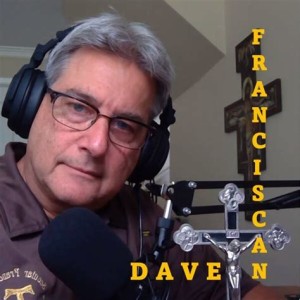
Monday Nov 22, 2021
Ep 134 - Bill on Journalism and Truth with Franciscan Dave
Monday Nov 22, 2021
Monday Nov 22, 2021
David Seitz, OFS, is a long-time professed member of the Secular Franciscan Order who holds an M.A. in theology from Sacred Heart Seminary in Detroit. He has written a book, available on line, called Come Let Us Worship: Reflections on the Words and Prayers of the Mass. He produces podcasts, videos, blogs, and speaks publicly, offering reflection for spiritual growth based on the life and works of St. Francis of Assisi. Find him at tauministries.com and, on YouTube, look for his nickname, Franciscan Dave.
Bill, also a Secular Franciscan, recently appeared on Dave's podcast, and I spoke with Bill about that conversation regarding journalism and virtuous communication. We discuss whether missionaries and scientists are also journalists and the spiritual value of seeking and spreading truth. Be sure to find their original conversation at Dave's site.

